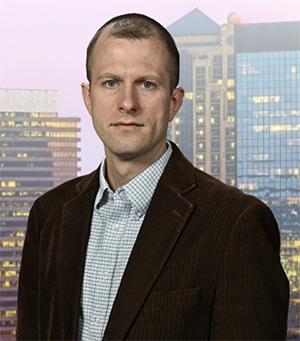What is a Chapter 13 Bankruptcy?
Chapter 13 bankruptcy is called a lot of things. It has been called debtors court. Many people refer to it as the “catch your breath” bankruptcy. Regardless of what it’s called, Chapter 13 bankruptcy is designed for people who work and get a paycheck, but are overwhelmed with creditors who want to be paid today. A Chapter 13 bankruptcy allows those people to pay back their creditors on a reasonable, more manageable basis. This is why it’s called the catch your breath provision; because it gives you time to catch your breath while you pay your creditors. It stops the phone calls, stops lawsuits, stops garnishments, and gets you on a level playing field against the mountain of debt you’re facing.
While in a Chapter 13, you are protected by the court from all collection efforts of your creditors. This includes garnishment of your pay, foreclosure of your house, and repossession of your car.
Here are several ways that your life will improve after filing a Chapter 13 bankruptcy:
The phone calls from creditors stop. The foreclosure sales stop. The garnishment of your wages will stop. The lawsuit that was filed against you will stop. The late fees will stop. In many cases, the interest rate will be lower. Best of all, there will be light at the end of the tunnel. You will have a plan in place and your hope will be restored for your future.
To get started on a Chapter 13 case, the first thing we would need to review is a list of all your debts, your income, and expenses. Together we will create a budget for you so that we can propose a monthly payment that you can actually afford. In the Chapter 13 bankruptcy, you will pay this new monthly payment to the trustee (typically for 60 months) to pay for all of your debt. This one amount will cover almost all of your debt unless there are some specific creditors that need to be paid directly. For those cases, we will go over those payments with you as well. At the end of the 60 payments (with a couple of exceptions), the remainder of your consumer debt is wiped away by the court. You get a fresh start and can plan for the future without the overwhelming burden and stress of debt. The calls will have stopped for good, the lawsuit that was against you will have been dismissed, and the garnishments will have ended permanently.
Like in a Chapter 7 case, you will have to attend the 341 hearing, also called the meeting of the creditors. This 341 hearing is run by the Chapter 13 Bankruptcy Trustee. Most people get the Chapter 7 bankruptcy trustee confused with the judge. At the 341 hearing, it’s not uncommon to hear a debtor answer a question with “yes your Honor” even though there is no judge at this hearing. The trustee is not a judge, but it is his or her job to scrutinize the bankruptcy case and ensure that it complies with the Bankruptcy Code.
At the 341 hearing, you will be required to swear under penalty of perjury that the documents you submitted to the court are true and accurate. The Chapter 13 Bankruptcy Trustee is not out to get you, but you must be completely honest and answer their questions. Some of the questions the Chapter 13 Bankruptcy Trustee will ask are:
- Did you meet with an attorney and review your petition?
- To the best of your knowledge, is everything in your petition true and accurate? Did you list all of your debts and assets?
- Did you sign the bankruptcy petition?
- Have you transferred or sold any assets within the last two years?
- Have recently inherited anything? Do you expect to inherit anything anytime soon?
- Are you suing anyone or do you have any type of claim against anyone that was not listed in your bankruptcy petition?
Once your Chapter 13 bankruptcy plan is approved, you will pay your monthly payments to the Trustee. Once you have made all of your payments, your bankruptcy will be discharged and most of your debts will be wiped away, leaving you with a clean slate and a fresh start for the future.
Recent Blog Posts
- How Chapter 13 Bankruptcy Can Stop Foreclosure and Help You Keep Your Home in Alabama
- Chapter 7 Bankruptcy Eligibility in Alabama: Understanding the Means Test
- Top 10 Benefits of Filing Bankruptcy in Alabama
- The Role of the FCRA in Protecting Your Privacy in Alabama
- How the FDCPA Protects Against Debt Collection Calls at Work in Alabama
 Attorney Matt Davis
Attorney Matt Davis